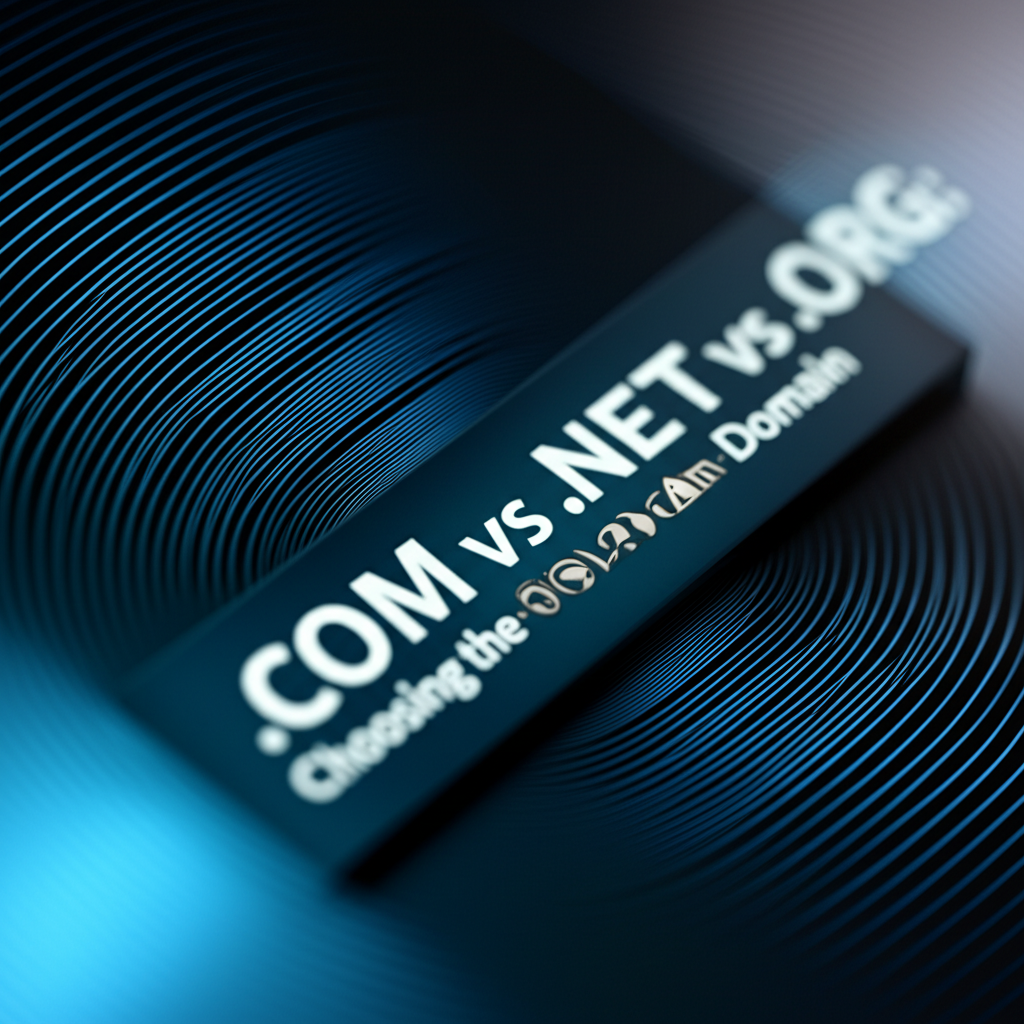- Understanding the Significance of .COM, .NET, and .ORG
- .COM: The Commercial King
- .NET: The Network Hub
- .ORG: The Organization's Choice
- .COM vs .NET vs .ORG: A Detailed Comparison
- Availability: The .COM Challenge
- Target Audience and Branding: Shaping Perceptions
- SEO Implications: Minimal Impact in Isolation
- Making the Right Choice: Which Domain Extension is Best for You?
- Beyond .COM, .NET, and .ORG: Exploring Other Options
.COM vs .NET vs .ORG: Choosing the Best Domain
Choosing the right domain name extension is a crucial step in establishing your online presence. While seemingly small, the suffix after your website name (like .com, .net, or .org) carries significant implications for branding, searchability, and target audience perception. This article will guide you through the nuances of .com, .net, and .org, helping you make the best decision for your website.
Understanding the Significance of .COM, .NET, and .ORG

Each domain extension has a historical context that influences its current perception. Understanding this history can help you choose an extension that aligns with your website’s purpose.
.COM: The Commercial King
.COM is the most recognized and widely used domain extension globally. Originally intended for commercial entities, it has become synonymous with the internet itself. Websites ending in .com often enjoy enhanced credibility and memorability, benefiting from users’ ingrained habit of typing .com by default.
.NET: The Network Hub
Initially designed for network-related organizations, .NET has evolved into a broader alternative to .com. It’s frequently chosen when the desired .com domain is unavailable. While not as instantly recognizable as .com, .net still maintains a strong online presence and is considered a reputable choice for various websites.
.ORG: The Organization’s Choice
.ORG is traditionally associated with non-profit organizations, charities, and foundations. It conveys a sense of community, trust, and a focus on public good. While for-profit businesses can technically use .org, doing so may create confusion and detract from the intended audience.
.COM vs .NET vs .ORG: A Detailed Comparison
Choosing the right domain extension involves evaluating several factors, including availability, target audience, and long-term goals. Let’s break down the key differences:
Availability: The .COM Challenge
.COM’s popularity makes it the most challenging to acquire. Desirable .com domain names are often already registered, forcing businesses to explore alternatives or pay premium prices. .NET and .ORG generally have greater availability, though finding the perfect name can still require some creativity.
Target Audience and Branding: Shaping Perceptions
Your domain extension subtly influences how your audience perceives your brand. .COM projects a sense of established credibility and commercial intent. .NET can suggest a technology focus or a broader scope. .ORG implies community engagement and non-profit ideals. Choose the extension that best reflects your brand identity and target audience.
SEO Implications: Minimal Impact in Isolation
While some speculate about a slight SEO advantage for .com domains, search engines primarily prioritize content quality and relevance. The domain extension itself plays a minimal role in search rankings. However, a memorable and easy-to-type domain (often .com) can indirectly benefit SEO by improving user experience and brand recall.
Making the Right Choice: Which Domain Extension is Best for You?
The best domain extension depends on your specific circumstances:
For Businesses: .COM is generally the ideal choice for most businesses. Its widespread recognition and established credibility boost brand trust and online visibility. If your desired .com is unavailable, .net can be a viable alternative. Avoid .org unless your business genuinely falls within the non-profit sector.
For Non-Profits: .ORG is the clear choice for non-profit organizations. It immediately signals your organization’s purpose and aligns with established expectations. Using a different extension can create confusion and undermine your credibility within the non-profit community.
For Technology-Focused Websites: While .NET was initially intended for network-related entities, its usage has broadened. It can be a suitable option for technology-focused websites, especially if the corresponding .com is unavailable. However, if a strong commercial aspect exists, .com might still be preferred.
When Your Ideal .COM is Taken: If your desired .com domain name is unavailable, carefully consider your options. .NET can be a reasonable alternative, but avoid using hyphens or unusual spellings in an attempt to secure a .com. A clear and memorable .net domain is often preferable to a convoluted .com.
Beyond .COM, .NET, and .ORG: Exploring Other Options
While .com, .net, and .org remain the most common extensions, numerous other top-level domains (TLDs) exist, such as .co, .io, .info, and country-specific codes (e.g., .uk, .ca). These newer TLDs offer niche appeal and can be effective depending on your target audience and industry. However, consider their potential impact on brand recognition and user trust, which might still favor the established trio.
Choosing your domain name extension is a strategic decision with long-term implications for your online presence. By carefully considering your goals, target audience, and the subtle connotations of each extension, you can select the best domain to represent your brand and achieve online success.















Leave a Reply